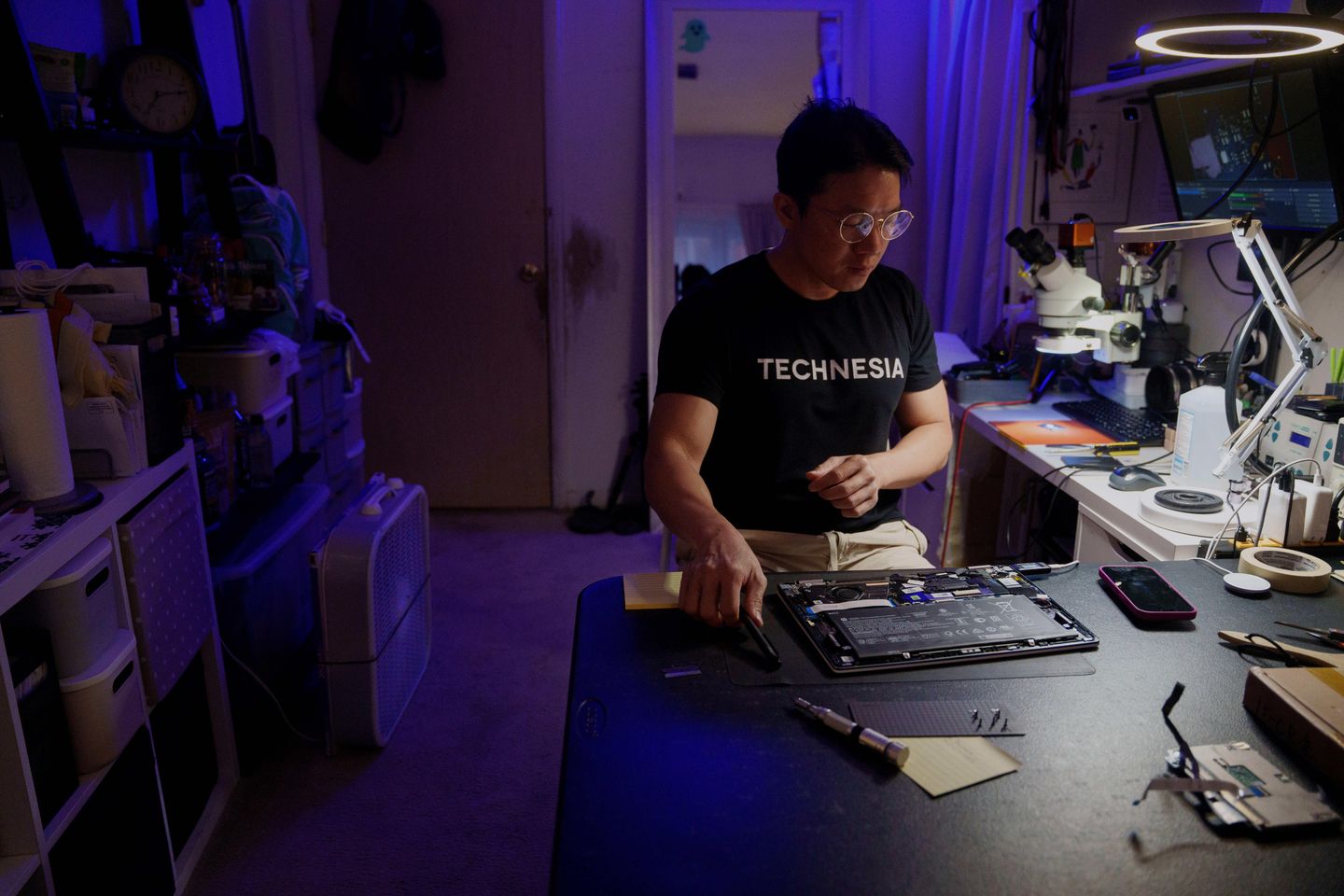
President Trump said to expect a tariff framework for computers, smartphones and semiconductors “very soon,” a sign the carveout from China tariffs for certain electronics will not last long.
At the same time, Mr. Trump said his administration would be flexible in imposing duties on devices made in China.
“That’s going to be announced very soon, and we’ll be discussing it, but we’ll also talk to companies,” Mr. Trump said on Air Force One late Sunday. “You know, you have to show a certain flexibility. Nobody should be so rigid. We have to have a certain flexibility.”
The administration on Friday outlined exemptions for certain electronics from the 125-145% tariff that Mr. Trump imposed on Chinese imports as part of an emerging trade war between the top global economies.
Mr. Trump and his team dismissed the idea they were exempting products, saying items like semiconductors had to be placed in a separate “bucket” because of national security concerns.
Investors saw the decision as a major boon for companies like Apple, which has a large manufacturing footprint in China. Wall Street stocks rallied early Monday, buoyed by tech stocks.
SEE ALSO: Trump administration officials say tariff reprieve on electronics is temporary
Turmoil in the markets, and increases in bond yields in particular, spooked Mr. Trump last week, prompting him to pause major tariffs on dozens of nations for 90 days.
However, he left in place a blanket 10% tariff on all imports and a 125% tariff on Chinese goods, which for many products comes on top of a 20% levy related to fentanyl trafficking. Electronics are still subject to the 20% fentanyl tariff on Chinese goods.
The evolving tariff regime is causing turmoil among U.S. apparel makers, farmers, restaurants and other companies that rely on foreign suppliers and markets.
Mr. Trump says people should remain calm because a major transformation to reduce trade deficits and boost U.S. manufacturing will take time.
“We have a tremendous country. We have a country that’s much richer today than it was a few months ago. We have a financial system that’s very respected,” Mr. Trump said.
Tariffs are a tax or duty paid by importers on the goods they bring in from foreign markets.
SEE ALSO: China’s Xi says there are no winners in a tariff war as he visits Southeast Asia
Mr. Trump wields tariffs as leverage to force companies to return to America or keep their operations in the U.S., employ American workers and create federal revenue to fund domestic programs.
Foreign countries don’t pay the tariffs directly to the U.S. Treasury. In many cases, U.S. companies will pay the levies, and they might pass on at least some of the cost to consumers through higher prices.
Earlier this year, the White House imposed a 25% tariff on steel and aluminum imports and a 25% tariff on cars not made in the U.S.
Canada and Mexico are subject to a 25% tariff over the fentanyl crisis, though a range of goods are exempt under the U.S.-Mexico-Canada agreement.
For now, the escalating trade spat between the U.S. and China is the primary focus.
China is imposing a 125% tariff on U.S. goods in response to Mr. Trump’s trade actions.
Also, it halted the export of a range of critical rare earth minerals and magnets that automakers, military contractors and other sectors rely on, according to reports.
The halt, pending a new regulatory framework from Beijing, impacts trading partners around the globe but appears aimed at the U.S.
Kevin Hassett, the director of the White House National Economic Council, said the paused exports are “being studied very carefully.”
“They’re concerning, and we’re thinking about all the options,” Mr. Hassett told White House reporters.
Mr. Trump and Chinese President Xi Jinping both seem to be waiting for the other leader to blink first or open the door to negotiations.
In the meantime, China is fostering its relations with other parts of the world. Mr. Xi on Monday kicked off a visit to Vietnam, Malaysia and Cambodia, and Beijing is courting Europe, too.
“As the second and third largest economies, China and the EU collectively account for over one-third of the global economy and more than a quarter of global trade,” Chinese foreign ministry spokesman Lin Jian said Monday. “China stands ready to work with the international community, including the EU, to step up communication and coordination, share development opportunities, expand opening up and cooperation, and achieve mutual benefits.”


![NYC Tourist Helicopter Falls into Hudson River, Siemens Executive and Family Among Those Killed [WATCH]](https://www.right2024.com/wp-content/uploads/2025/04/NYC-Tourist-Helicopter-Falls-into-Hudson-River-Siemens-Executive-and-350x250.jpg)





![Red Sox Fan Makes the ‘Catch of the Day’ with Unconventional ‘Glove’ [WATCH]](https://www.right2024.com/wp-content/uploads/2025/04/Red-Sox-Fan-Makes-the-‘Catch-of-the-Day-with-350x250.jpg)
![Green Day’s Cringe Trump Diss Ends in Fire and Evacuation [WATCH]](https://www.right2024.com/wp-content/uploads/2025/04/Green-Days-Cringe-Trump-Diss-Ends-in-Fire-and-Evacuation-350x250.jpg)

![Bikini Clad Spring Breakers Prove Our Education System is Failing Students [WATCH]](https://www.right2024.com/wp-content/uploads/2025/03/Bikini-Clad-Spring-Breakers-Prove-Our-Education-System-is-Failing-350x250.jpg)





